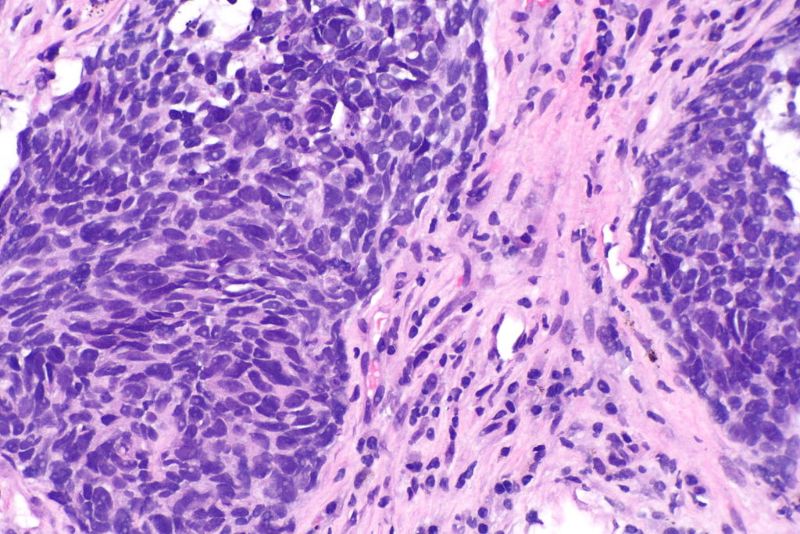
Pfizer has reported positive results from the Phase III CROWN clinical trial of Lorbrena (lorlatinib) in patients with previously untreated advanced anaplastic lymphoma kinase (ALK)-positive non-small cell lung cancer (NSCLC).
The trial met its primary endpoint of significantly improved progression-free survival (PFS) when compared to Xalkori (crizotinib).

Discover B2B Marketing That Performs
Combine business intelligence and editorial excellence to reach engaged professionals across 36 leading media platforms.
An independent Data Monitoring Committee (DMC) analysed the data at the interim analysis stage. The safety profile for the study drugs were consistent with that observed in previous trials.
Pfizer Global Product Development Oncology chief development officer Chris Boshoff said: “These top-line results of the CROWN study reinforce the significant benefit of Lorbrena demonstrated in later-line settings, and we are excited to share these data soon with physicians and other healthcare providers, as well as engage with global regulatory authorities to potentially provide people with previously untreated metastatic non-small cell lung cancer this third-generation ALK-inhibitor.”
The drug is a tyrosine kinase inhibitor (TKI) found to be highly active in preclinical lung cancer models with chromosomal rearrangements of ALK. It is designed to specifically block tumour mutations that drive resistance to other ALK inhibitors.
The randomised, open-label, parallel, two-arm CROWN study compared Lorbrena to Xalkori as a monotherapy in a total of 296 patients with previously untreated advanced ALK-positive NSCLC.

US Tariffs are shifting - will you react or anticipate?
Don’t let policy changes catch you off guard. Stay proactive with real-time data and expert analysis.
By GlobalDataThe primary endpoint of the trial is PFS based on blinded independent central review (BICR).
Secondary endpoints include overall survival, PFS based on investigator’s assessment, objective response (OR), duration of response (DR), time to tumour response (TTR), and safety.
In 2018, the US Food and Drug Administration (FDA) approved the drug for ALK-positive metastatic NSCLC that has progressed on crizotinib and at least one other ALK inhibitor for metastatic disease.
It is also indicated for patients whose disease has progressed on alectinib or ceritinib as the first ALK inhibitor therapy for metastatic disease.
In June this year, Pfizer and Sangamo Therapeutics reported positive follow-up data from the Phase I/II Alta study of giroctocogene fitelparvovec to treat severe hemophilia A.





